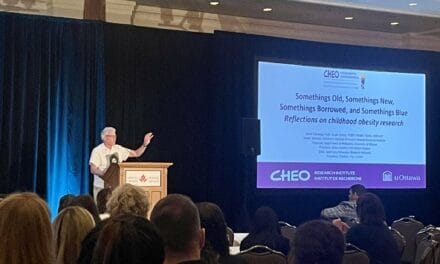Research Scientist Dr. Kristi Adamo was recently awarded a 5-year operating grant from the Canadian Institutes of Health Research to study the relationship between maternal physical activity and placenta biology. The value of the grant is $833,864. Citation details and a summary of the grant are below.
TITLE: Does maternal physical activity affect placenta biology? A multi-tiered approach
PRINCIPAL INVESTIGATOR: Adamo, Kristi B
CO-INVESTIGATORS: Arnason, John T; Bainbridge, Shannon A; Ferraro, Zach; Ferrier, Jonathan J; Gaudet, Laura M; Holcik, Martin; Shearer, Jane
ABSTRACT: Sir David Barker devoted his life to research examining the role of the intrauterine environment on downstream child health once said ‘the womb may be more important than the home’. No clearer testament is needed to signify the importance of engaging in behaviours that support a healthy pregnancy. Being born large for gestational age (i.e., fetal overgrowth) is a marker of the fetal environment and is predictive of downstream child obesity. Yet the causal mechanisms responsible for this accelerated growth are relatively unknown. Engaging in physical activity during pregnancy helps regulate pregnancy weight gain and fetal size at birth. In fact, pregnancy physical activity is strongly related to a reduction in birth weight extremes – meaning more healthy sized neonates. The placenta is the key interface between a mother and fetus, but little is known about how lifestyle behaviours such as physical activity may impact the placenta and regulate energy/nutrient delivery to the developing baby. The purpose of this study is to explore how regular physical activity affects placental biology by examining the expression of genes involved in nutrient transport and the factors that may be involved in regulating these processes. We hypothesize that compared to inactive women, active women will have a placenta with different biological characteristics. This novel study will be the first of its kind and contribute to our understanding of the relationship between physical activity level, often ignored in pregnancy-related research, placenta gene expression, and its relationship with fetal over-growth. It is necessary to fully understand these mechanisms before effective clinical strategies can be developed to protect against fetal overgrowth and the presentation of downstream obesity.
***If any graduate students are interested in working on this project, please contact Dr. Kristi Adamo.***




